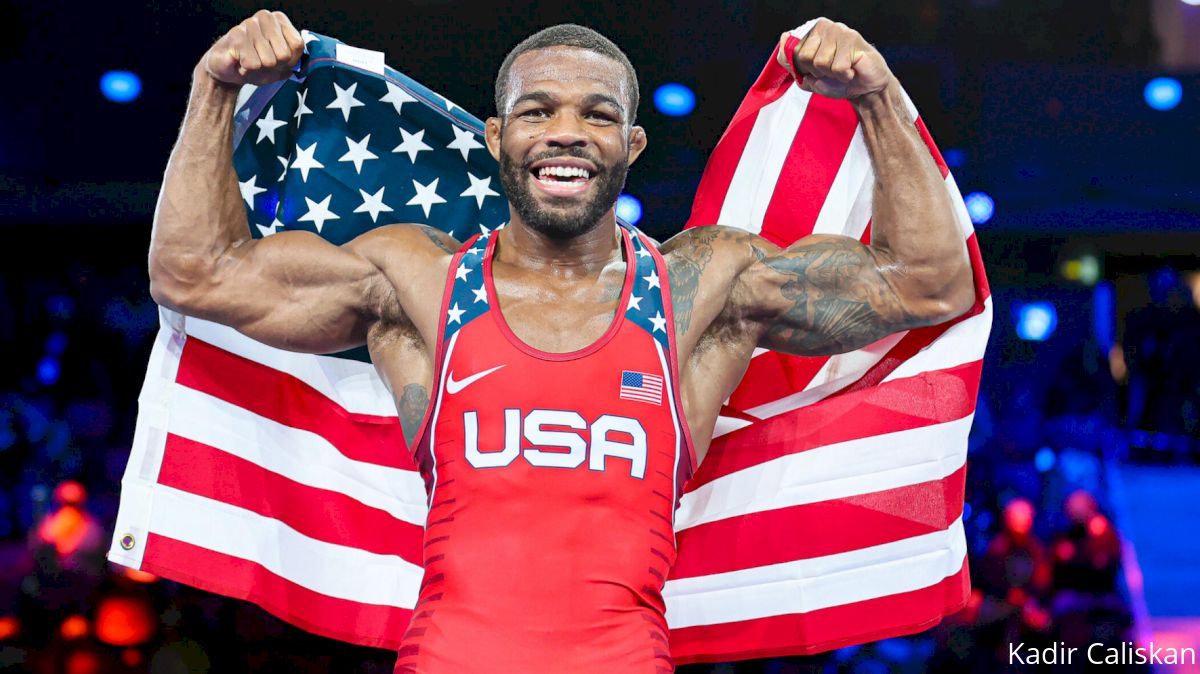Many Of Sport's Elite Wrestlers Not Becoming College Coaches
Many Of Sport's Elite Wrestlers Not Becoming College Coaches
What happens when our best wrestlers decide not to coach in college? That needs to be answered as we continue the most prosperous era of American wrestling.

Will the next great college wrestling coach please stand up?
This is a legitimate question as we enter a new era ushered in by our best wrestlers competing longer than ever. This is good news for wrestling fans. We get to watch Jordan Burroughs, 33, Kyle Dake, 30, and David Taylor, 30, compete for another Olympic cycle.
The best professional athletes in other sports prolong their careers as long as possible. Why wouldn’t ours? Winning at the highest levels of wrestling has become financially lucrative so there’s no reason to look elsewhere for income.
This might lead to a college coaching void that we will need to figure out. Not only are our best wrestlers competing longer, but they are also exploring opportunities that extend beyond college coaching.
Burroughs, in particular, has indicated that he has no interest in coaching after his competitive career is complete. Taylor already has M2 Training Center, which includes a stand-alone wrestling facility in Pleasant Gap, Pennsylvania.
Mixed Martial Arts has also become a viable option.
We are slowly seeing our best wrestlers move away from the college coaching game to create a lane that is uniquely theirs.
This is in stark contrast to the prescribed wrestling formula that took place in the 20th century. If you were a great wrestler, the unwritten rule was to become a college coach immediately following your competitive career.
Dan Gable was 27 when he took over at Iowa. John Smith (Oklahoma State), Cael Sanderson (Iowa State then Penn State), and Jim Gibbons (Iowa State) were 26. Myron Roderick was 22 when he was named Oklahoma State’s head coach.
All five led their respective teams to NCAA titles.
The athletic careers of Gable, Smith, and Sanderson raise questions now that Burroughs, Dake, and Taylor are competing into their 30s. Would their competitive resumes look different if they competed for another Olympic cycle?
Why would Gable retire from competition after winning a World title in 1971 and an Olympic gold medal in 1972? He was only 23 and his prime years were ahead of him. His early exit makes sense when you understand that Olympic athletes could not receive income since it was strictly amateur.
Gable was the first American to win a World title and an Olympic gold medal in back-to-back years. Why keep competing when you’ve accomplished everything? It’s time to move into the coaching arena where you can make money.
Smith won six World and Olympic titles from 1987-92 then retired the day before his 27th birthday. What if he went another Olympic cycle and retired at 30? Could he have won 10 in a row? Did we miss out on a four-year competitive rivalry between Smith and Tom Brands?
“I think for us, it was more or less what you were supposed to do,” Smith said. “I probably looked more at Dan Gable than anyone. He went through one cycle and was done — then he started coaching.
“In some ways, I felt like that was probably what I needed to do. I think it was a different time. I don’t have any regrets. I was ready to start coaching and OSU needed a coach at the time. It might have been different if OSU didn’t need a coach. I don’t know. I felt like it was time for me to take a much more responsible job and that’s being a head coach.”
Gable, Smith, and Sanderson exchanged individual accomplishments for coaching accolades. Gable has 15 team titles, Sanderson has eight, and Smith has five. Their careers are a balance of success on the mat with coaching careers that rival their athletic accomplishments.
The next generation has started a new trend. Wrestlers want to star on the mat instead of next to it. And if they can’t be the star on the mat, then they’ll be the star in something else.
Ben and Max Askren created Askren Wrestling Academy in Wisconsin. Jody Strittmatter and Eric Juergens started Young Guns out of Pennsylvania. Brandon Paulson and Jared Lawrence are co-owners of Pinnacle Wrestling in Minnesota.
All six bucked the trend of college coaching and the intense scrutiny that comes with it to develop our next generation of wrestling superstars.
Who will develop our next generation of college wrestling coaches? This is a question that should be answered as we enjoy the most prosperous time of competitive wrestling in U.S. history.